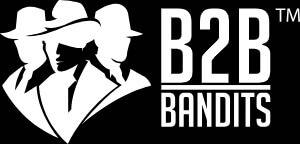Editor’s Note: This is a continuation of Chapter II, so if you’re not caught up, do it here, or read all of our published excerpts from our work in progress here.
In the last excerpt, Nate encourages you, the dear reader, to avoid borrowing money to start your business. Here’s why:
 There are a lot of ways to fund a new business:
There are a lot of ways to fund a new business:
- Get a loan from a bank
- Get a loan from a private investor
- Get a loan from friend
- Get a loan from a family
- Put the expenses on a personal credit card
- Win a contest
- Apply for a grant
- Save money from your day job
- Bootstrap
Banks charge interest, and rarely loan money without gold-star credit. Most people with an awesome credit score also have a saving account.
Private investors will want a stake (and usually some level of control) in your company, and will require a ton of legwork. Not necessarily a bad thing, but an investor feels an awful lot like a boss to me.
Owing money to family is … well who likes owing mom money?
Owing money to a friend is a great way to end a friendship.
Putting your expenses on a card is only advisable if you possess highly-disciplined spending habits.
There are some cool contests out there for every flavor of business, however, you must accept the fact that you may spend countless hours submitting your idea to contests, and not win anything. Some cases it’s worth it. Others not.
Same goes for grants. And more and more foundations responsible for disbursing that funding are shying away from new businesses in favor of growing established enterprises.
Saving money from your day job is a good, assuming you 1) have a day job, and 2) have excess income.
That leaves bootstrapping. My business was started when my bank account was in the negative, unemployment had ran out, and my one credit card was maxed out. I had a phone, a car, an internet connection, some favors owed to me from my small gaggle of friends, and a swiss army knife of what I considered unmarketable skills. (No plan either … though the one-page business plan outlined earlier would have saved me a lot of pain in that first year). I cashed in a favor, and picked up my first project working for McDonald’s wages.
Now I know that more complex businesses will require funding (i.e. restaurants), but even the more complicated models can at least be self-funded (i.e. start with a food cart for $5K vs. the $50K+ needed for a restaurant).
If you need a big loan to start your business, then your idea is flawed to begin with. Leaning out your budget early forces you to solve real problems. It makes you stronger. It makes you strong. And it will make you more successful.
Learn more about starting a business without taking out a loan with this blog by Jim Wang on WiseBread.

